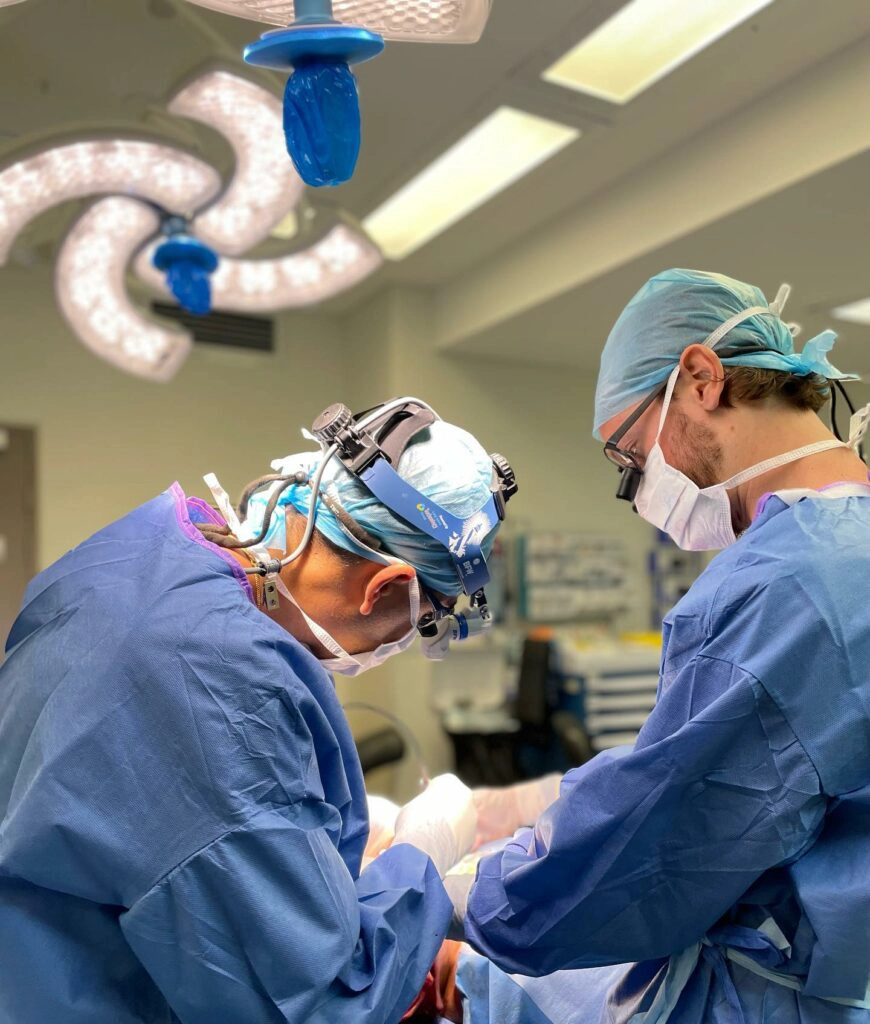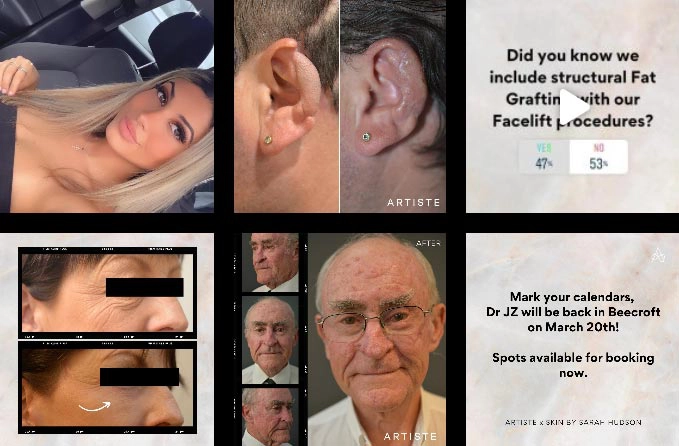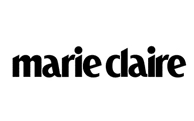How to choose the right facial surgeon in Sydney?
Model featured in photography

Selecting the right professional for a cosmetic surgery, such as facelift, is an important decision that requires careful consideration. To find the best plastic surgeon for a facelift, it’s essential to research their qualifications and experience. Facial procedures may assist in addressing concerns such as signs of ageing, but individual results and experiences vary.
In this blog, we share general information and tips in selecting a facial surgeon. Consulting a qualified specialist is essential for personalised advice tailored to your needs.
1. Check your surgeon’s credentials thoroughly
When considering any medical procedure, it is crucial to ensure your chosen surgeon has the appropriate qualifications and training.The Royal Australian College of Surgeons (RACS) is the only body recognised to train surgeons. The Fellow of the Royal Australasian College of Surgeons (FRACS) is the only formal qualification in cosmetic surgery.
Beware of others claiming to be plastic or cosmetic surgeons. Only a formal FRACS ensures your surgeon has completed specialist surgeon training in plastic surgery and operates only in accredited medical facilities. You may search the practitioner’s registration in the Australian Health Practitioner Regulation Agency (AHPRA) to ensure they have the appropriate qualifications in their field.
2. Know your surgeon’s expertise
Some surgeons specialise in specific procedures or techniques, making it important to select a professional with experience relevant to your needs. For example, if you’re exploring facelift options, you may wish to consult a plastic surgeon who has significant expertise in this area.
During your consultation, ask about the surgeon’s training, experience, and approach to ensure they align with your preferences. A qualified professional will provide personalised advice to help you make an informed decision.
3. Check the Accredited Facility
Ensuring your procedure is conducted in an accredited medical facility is vital for maintaining safety and quality standards. Accredited facilities adhere to strict protocols regarding hygiene, equipment, and emergency preparedness. This ensures that patients are cared for in a regulated environment designed to minimise risks and provide a safe setting for medical procedures. Accreditation also confirms that the facility complies with national health regulations, giving patients confidence in the quality of care they will receive.
From pre-procedure consultations to post-procedure monitoring, these facilities are equipped to support every step of your journey.
During your consultation, ask your surgeon about the accreditation of the facility where the procedure will be performed. This helps you make an informed decision and ensures your safety and comfort are prioritised throughout the process.
4. Understand the Risks and Benefits
A qualified practitioner will provide clear and comprehensive information about the potential risks and benefits of a procedure, enabling you to make a well-informed decision. This discussion ensures that you have realistic expectations and a thorough understanding of what the procedure entails, including any possible complications or recovery considerations.
Take the opportunity during your consultation to ask questions and address any concerns. A reputable practitioner will prioritise transparency and provide tailored advice to help you evaluate whether the procedure aligns with your needs and goals.
When considering a facelift, some may also consider undergoing a facelift abroad. Countries with well-regulated healthcare systems, including Australia, are often considered safe for facelifts due to their strict medical standards. In Australia, obtaining a GP referral and undergoing BDD screening are essential steps before undergoing any cosmetic procedures.
If you want to know more about cosmetic surgery, reach out to our Specialist Plastic Surgeon, Dr Jack Zoumaras. He is a world-trained face surgeon and Peer-Reviewed Facelift Surgeon with international training in New York and Paris. Currently, he is the Chairman of the Australian Society of Plastic Surgeons, NSW Chapter. Get in touch with our team if you wish to consult.
Disclaimer: At Artiste Plastic Surgery, our Plastic Surgeons led by Dr Jack Zoumaras have been trained to the highest possible degree. All surgery has risks and it is always advised to get a second opinion. Risks are very real and we cannot guarantee any result. Results are illustrated as a guide only. All risks are managed and any need for revision surgery or complications (1-5%) can be managed by our specialist plastic surgeons.
Any statements on how you will feel is based on Level V Evidence:
Level V: How you will feel after plastic surgery varies between individuals, depending on psychological and physical factors. Our internal research is based on how patients in our practice feel after surgery.
The blogs are not a substitute for a medical consultation and do not form as part of the doctor to patient relationship.
SHARE THIS ARTICLE
Jul01
Facelift Recovery Tips: What Speeds Up Healing and What to Avoid
Disclaimer: At Artiste Plastic Surgery, our Plastic Surgeons led by Dr Jack Zoumaras have been trained to the highest possible degree. All surgery has risks and it is always advised ...
Jul01
How to Prepare for Facelift Surgery: What to Do Before Your Big Day
Disclaimer: At Artiste Plastic Surgery, our Plastic Surgeons led by Dr Jack Zoumaras have been trained to the highest possible degree. All surgery has risks and it is always advised ...
ABOUT ARTISTE
Artiste Plastic Surgery is an Award Winning Specialist Plastic Surgery practice led by internationally trained Dr. Jack Zoumaras, Plastic Surgeon and Peer Reviewed Face Surgeon
Artiste offers the latest Cosmetic Surgical Procedures of the Face, Breast and Body, inspired from leading centres around the world.
STAY IN THE LOOP
Enter your email address below to receive updates on new articles and VIP access to promotions and special offers.
FOLLOW US ON INSTAGRAM










